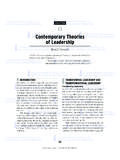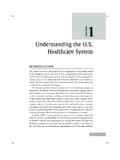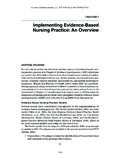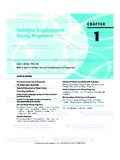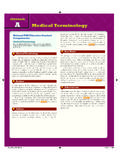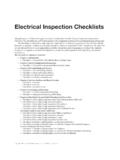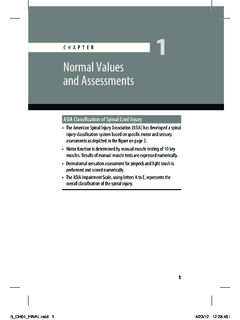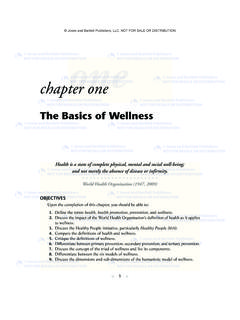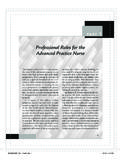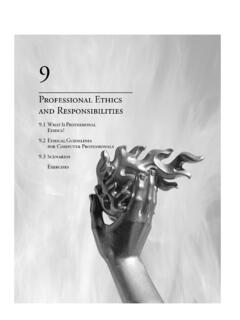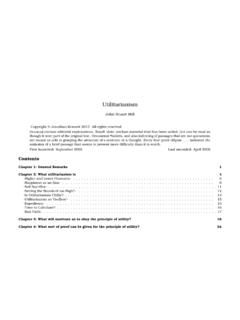Transcription of Principles of Healthcare Ethics
1 CHAPTER 2 Principles of Healthcare EthicsJim SummersINTRODUCTIONC hapter 1 of Health Care Ethics : Critical Issues for the 21st Century presented the major ethical theories and their application in health care as part of a foundation for the study of Ethics . This chapter extends that foundation by showing how those theories inform the Principles used in health care and apply to the issues in that field. The Principles commonly used in Healthcare Ethics justice, autonomy, nonmaleficence, and beneficence provide you with an additional foundation and tools to use in making ethical decisions.
2 Each of these Principles is reviewed here. The concept of justice is presented last because it is the most complex. In addition, this chapter presents a model for decision making that uses your knowledge of the theory and Principles of we go back to the basic understanding of the Hippocratic ethical teaching, we arrive at the dictum of first do no harm, benefit only. The principle of nonmaleficence relates to the first part of this teaching and means to do no harm. In Healthcare Ethics , there is no debate over whether we want to avoid doing bad or harm.
3 However, the debate occurs when we consider the meaning of the word harm. The following ethical theories come into play here:s ! CONSEQUENTIALIST WOULD SAY THAT HARM IS THAT WHICH PREVENTS THE GOOD OR leads to less good or utility than other ! NATURAL LAW ETHICIST WOULD SAY THAT HARM IS THAT WHICH IS OPPOSED TO OUR rational natures, that which circumscribes or limits our ! DEONTOLOGIST WOULD SAY THAT HARM IS THAT WHICH PREVENTS US FROM carrying out our duty or that which is opposed to the formal conditions of the moral ! VIRTUE ETHICIST A PERSON SEEKING eudaimonia, a person of practical wisdom would find that harm is that which is immoderate, that which leads us away from manifesting our proper ends as !
4 N ETHICAL EGOIST WOULD DEFINE HARM AS THAT WHICH WAS OPPOSED TO HIS OR her Is Harm in the Clinical Setting?In the clinical setting, harm is that which worsens the condition of the patient. However, deciding what harm or worsen means is no simple matter. Much of health care involves pain, discomfort, inconvenience, expense, and perhaps 47even disfigurement and disability. Using the natural law theory of double EFFECT WE JUSTIFY HARM BECAUSE THERE IS A GREATER GOOD ! CONSEQUENTIALIST would say that the greater good, the greater utility, occurs from accepting the pain or dismemberment as part of the cost to get the benefit the Healthcare procedures promise.
5 The due care standard to provide the most appropriate treatment with the least pain and suffering sounds almost like a deontological Healthcare workers consider harm to mean physical harm, because the long history of healing has focused primarily on overcoming bodily disorders. However, harm can occur in other ways. For example, Healthcare managers can CAUSE HARM BY FAILING TO SUPERVISE EFFECTIVELY 4HE RESULT MAY BE INADEQUATE STAFF OR A LACK OF EQUIPMENT THAT IS MAINTAINED OR KEPT UP TO DATE %ITHER OF these can lead to adverse patient outcomes.
6 Harm also comes from strategic decisions that lead to major financial losses and jeopardize the ability of the organization to continue. At a different level of harm, making the decision to dispose of hazardous materials without taking proper precautions puts the community at risk. In another example, Healthcare policy makers can cause HARM BY CHANGING ELIGIBILITY REQUIREMENTS THAT LEAD TO PATIENT POPULATIONS being unable to afford or to access the care they need. The ways in which harm can occur are as NegligenceGiven the vast number of ways in which harm can occur, Healthcare workers have developed numerous protocols to protect patients, families, the community, and themselves.
7 Failure to engage in these protocols is an act of omission, as opposed to directly doing harm, which is an act of commission. A substantial body of law and ethical understanding supports the view that such a failure is negligence (omission). The person has not exercised the due diligence expected of someone in his or her financial managers also face a number of laws to ensure that they are not engaging in fraud and abuse, which also cause harm. For example, failure to follow the expectations of good financial management is essentially malfeasance.
8 This term is very close to maleficence and represents neglect of fiscal responsibility. Medical professionals find a similar term with malpractice. Part of the education of all Healthcare professionals concerns what it takes to avoid doing harm, to ensure that due diligence is of the development of a Healthcare professional is to create a person of integrity who would consider it a violation of self to put those who trust in him or her at risk. Persons who avoid this violation are persons of practical wisdom. They have achieved eudaimonia in their professions and in their lives.
9 They can sit down together and discuss what they should do in a complex ethical situation . In the Healthcare community, we believe that persons working within the Healthcare ethic share a common understanding of the mission, vision, and values of health care. They are able to reason together, even if they get to their conclusions by different ethical theories and Principles . The shared values of first do no harm, benefit only provide a foundation that is often lacking in ethical disputes outside of health HEALTH CARE ETHICSHarm as Violations of AutonomyAn exceedingly large number of issues come to the surface as soon as you begin TO ADDRESS THE ISSUE OF WHAT HARM IS IN A THOUGHTFUL WAY &OR EXAMPLE QUALITY of-life issues come into play.
10 If a person elects not to receive a treatment because OF A LOSS OF LIFE QUALITY THEN MANY PEOPLE BELIEVE THAT IMPOSING THE TREATMENT ON that person is wrong. This would violate the principle of autonomy and evidence paternalism. Using the principle of autonomy, persons own their , if the person is incompetent, the ethical approach is to determine if one knows the person s wishes from the time when he or she was competent, and, if known, to follow them. This practice is termed substituted judgment. If the person s wishes are unknown, then the usual approach is called, the best interests or reasonable person decision.
